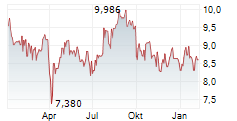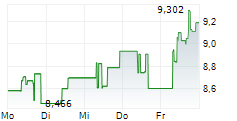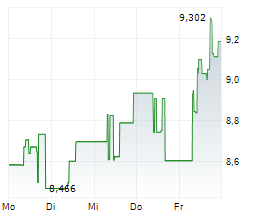
Striving to contribute to the "green transformation" (GX) of data centers and the digital transformation (DX) of municipalities and local businesses
TOKYO, Aug 1, 2025 - (JCN Newswire) - Honda Motor Co., Ltd. (Honda) has started a demonstration project jointly with Tokuyama Corporation (Tokuyama) and Mitsubishi Corporation (MC), to operate a data center using by-product hydrogen and a stationary fuel cell (FC) power station designed to reuse FC systems from fuel cell electric vehicles (FCEVs). The companies today held an opening ceremony at the demonstration site located in Shunan City, Yamaguchi Prefecture, Japan.
The three companies have been discussing and preparing for the launch of the demonstration project since June 2023, when this project was proposed to and adopted by the New Energy and Industrial Technology Development Organization (NEDO) as one of the projects for the "Development of Technologies for Realizing a Hydrogen Society / Development of Technologies for Regional Hydrogen Utilization."
In this demonstration project, a stationary FC power station that Honda has developed based on the assumption of reusing fuel cells recovered from FCEVs utilizes by-product hydrogen produced by Tokuyama's salt water electrolysis business to generate electricity and supply the electricity to a distributed data center operated by MC, at the demonstration site located in Shunan City, Yamaguchi Prefecture, Japan.
Through this demonstration project, the three companies will explore the potential of reusing automotive FC systems for stationary FC power station applications, and verify the possibility of contributing to 1) a reduction in the economic burden on customers who will install and operate stationary FC power stations and 2) the decarbonization of electric power, through effective use of FC systems, which are expected to see broader adoption in the future.
A further increase in power demand for data centers is expected in the long run due to the advancement of technologies that require large-volume data processing, such as generative AI and automated driving. In the face of this market environment, by utilizing 1) by-product hydrogen, which can be produced/supplied stably with low carbon emissions, and 2) FCs designed to be reused, to supply electricity to distributed data centers, the three companies will strive to contribute to the "green transformation" (GX) of data centers and the digital transformation (DX) of municipalities and local businesses.
In this demonstration, electricity from multiple sources, such as 1) a stationary FC power station that utilizes by-product hydrogen, 2) the power grid, 3) stationary batteries (BESS*1), and 4) renewable energy sources will be combined to verify more efficient and optimal power configuration for different patterns of operation.
The following specific patterns of stationary FC power station utilization, based on various possible scenarios, will be demonstrated by switching among these operation patterns via an Energy Management System (EMS):
1) Use as a backup power source
2) Use as an off-grid primary power source
3) Use for peak shaving of grid electricity consumption
4) Use for grid supply-demand balancing, including supplying electricity back to the grid
In addition to verifying the practicality and business viability of stationary FC power station operation, a wide range of potential applications will be explored through this demonstration project.
*1 BESS: Battery Energy Storage System
*2 Peak shaving: Reducing electricity consumption during peak demand periods
About Honda Stationary Fuel Cell Power Station
Honda was one of the first companies to focus on the potential of hydrogen toward the realization of a carbon-neutral society and has been conducting research and development of hydrogen technologies and FCEVs for more than 30 years. Working toward the realization of carbon neutrality for all products and corporate activities Honda is involved in by 2050, Honda has identified four core domains for its fuel cell system application - fuel cell electric vehicles (FCEVs), commercial vehicles, stationary power station and construction machinery - and has been working to further expand opportunities for its hydrogen business.
The Honda stationary FC power station is a stationary power storage system designed to supply clean, hydrogen-derived electricity to large-scale facilities such as factories and other business operations. The stationary FC power station being used in this demonstration project utilizes fuel cells used for a Honda CR-V e:FCEV fuel cell electric vehicle.
The Honda stationary FC power station is capable of supplying electricity to meet the maximum amount of electricity consumption by the customer in accordance with their needs. Moreover, the compact size of the unit achieved by the optimization of the cooling system and internal layout enables flexible installation options to accommodate the conditions of the customer's installation site. In addition, the Honda stationary FC power station is designed to achieve high responsiveness, aiming to begin power supply within 10 seconds of startup, to serve as a reliable backup power source in case of an emergency.
Through its stationary FC power station, Honda will supply electricity that accommodates the various power needs of customers, while also contributing to the decarbonization efforts of each customer by providing comprehensive support for the entire process-from installation to after-sales services.
For more details, please visit:
https://global.honda/content/dam/site/global-en/newsroom-new/cq_img/news/2025/08/c250801aeng/c250801aeng.pdf
Source: Honda Motor Co, Ltd
Copyright 2025 JCN Newswire . All rights reserved.
© 2025 JCN Newswire



